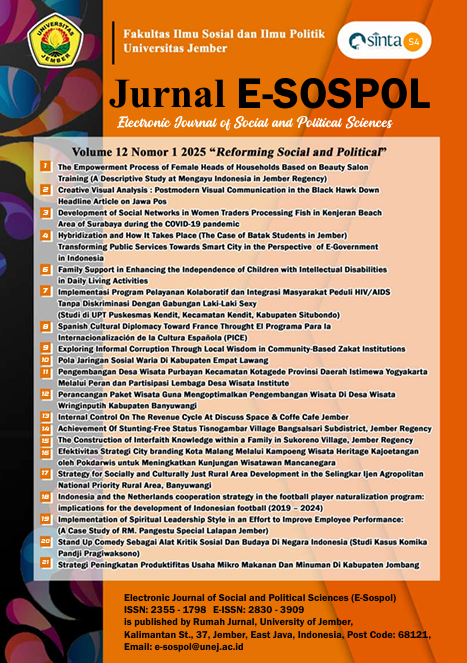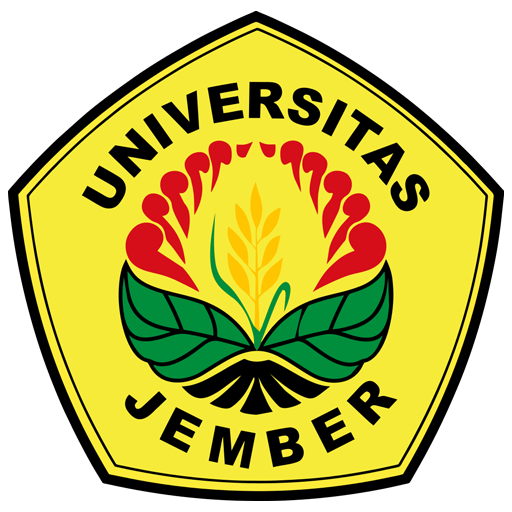Achievement of Stunting-Free Status Tisnogambar Village Bangsalsari Subdistrict, Jember Regency
DOI:
https://doi.org/10.19184/e-sospol.v12i1.53702Abstract
Stunting is a significant chronic nutritional problem in Indonesia, including in East Java, which affects children's growth and development. This study aims to explore the factors that influence stunting and its mitigation. Stunting is caused by inadequate nutritional intake, especially during the first 1000 days of life, as well as infections, poor sanitation and family economic conditions. Although the prevalence of stunting in East Java has decreased from 23.5% in 2021 to 19.2% in 2022, this figure still indicates that many children are affected. Effective nutrition interventions, such as multi-nutrient supplementation, nutrition education, and adequate nutrition support, are needed to improve children's nutritional status and reduce the risk of stunting. Research by Yudho Bawono et al. (2024) showed that socialisation on the impact of stunting increased community knowledge by 6.20%, confirming the importance of education in stunting prevention at the community level. In addition, the nutritional condition of the mother during pregnancy also plays an important role in the risk of stunting in children. Nutrient deficiencies such as iron and vitamin D during pregnancy can lead to low birth weight and stunting. Therefore, a comprehensive approach, involving education, access to health services, and collaboration between the government and the community, is essential to ensure children receive adequate nutrition and can grow optimally. This study is expected to provide deeper insights into the factors that influence stunting and the effectiveness of prevention efforts that have been made.
Downloads
Downloads
Published
Issue
Section
License
Penulis yang mengusulkan naskahnya untuk dapat diproses penerbitannya pada e-SOSPOL dianggap telah menyetujui beberapa hal sebagai berikut:
1. Penulis tidak dapat menarik naskah yang telah usulkan untuk diproses hingga mendapat jawaban dari Ketua Dewan Penyunting atas status naskah artikel ilmiahnya (diterima atau ditolak untuk diterbitkan).
2. Penerbit tidak bertanggung jawab terhadap kasus plagiasi atas artikel yang terbit pada e-SOSPOL
3. Penerbit tidak bertanggung jawab atas data dan isi dari artikel yang diterbitkan pada e-SOSPOL, dan sepenuhnya merupakan tanggung jawab penulis.







